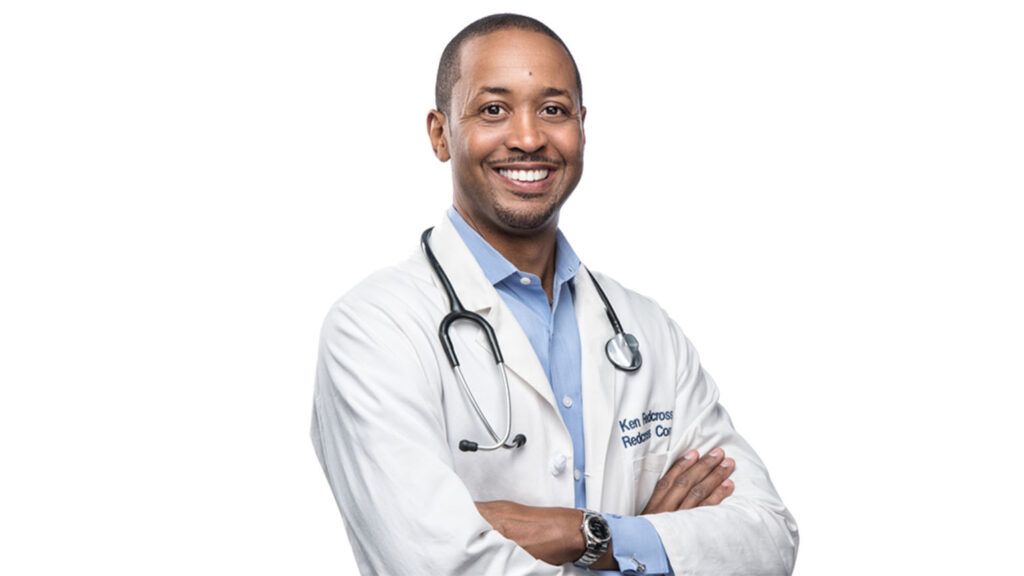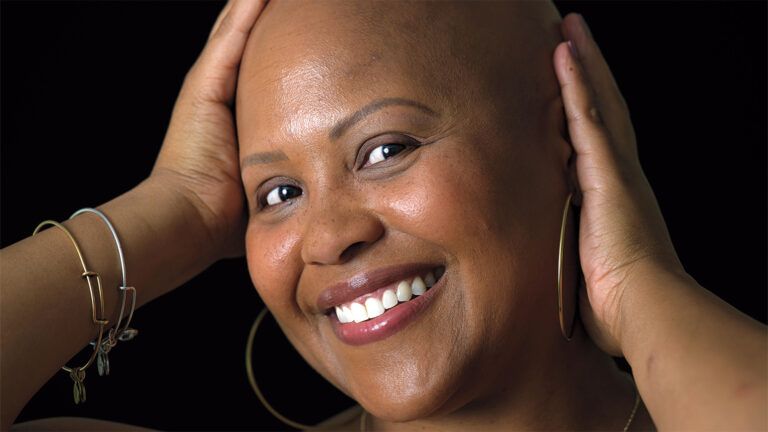This article is provided in collaboration with Arnicare.
For many people, growing old is a dreadful process and the term ‘aging’ is surrounded by fear and anxiety. But aging is healthy and a normal part of life. It’s also a reason for celebration, as you look back at the life lessons and experiences that shaped you and helped you grow.
Dr. Ken Redcross, a concierge physician who focuses on creating convenient health strategies for patients by moving away from the limitations of the office and practicing medicine concierge style, spoke to Guideposts.org on the importance of embracing aging and the influence our mind and spirit has on the aging process.
“Acceptance is important because we have to recognize that aging is among God’s blessings of life and it’s a beautiful process in which we gain wisdom and love,” he said.
Dr. Redcross explains that through faith, positivity and recognition, we’re putting the power of the mind to work and allowing it to shift our perspective on aging.
Here are a few of his tips to help you make the aging process a more positive experience.
1. Keep a gratitude journal
Practicing gratitude offers a clear perspective of what’s important to you and what you want to have more of in your life. Dr. Redcross carries a gratitude journal to log all the things he’s grateful for everyday and recommends you do the same.
“Documenting my wins as well as my perceived losses allows me to recognize that all moments—both good and bad—are instances that I can grow from,” he said.
According to HuffPost, writing in a gratitude journal for at least 15 minutes before bed can increase sleep quality and lower stress levels.
2. Create or strengthen bonds
According to Dr. Redcross, human beings, whether introverted or extroverted, all thrive on human interactions. Maintaining healthy relationships with those close to us impacts our overall wellness, particularly our mental and emotional health.
“As you age, it’s important to focus on surrounding yourself with people who put a smile on your face and help you grow spiritually,” Dr. Redcross said, while also emphasizing the importance of the patient-doctor bond, which he describes as essential to one’s own aging experience in his book, Bond.
“The relationship you have with your doctor must involve trust, respect, empathy and communication in order to grow and age well with the help of your doctor,” he added.
3. Align your mind, body and spirit
According to Dr. Redcross, it’s important not to give stress, or the ‘s-word’ as he calls it, power as it can kill our spirit and affect our minds in so many ways. One way to protect your mind is by centering yourself. The method in which you choose to align your body and spirit—whether it’s in the form of meditation or prayer—should be something that allows you to unplug and be at peace.
“When your mind state is in the right place, especially when it comes to aging, it contributes not only to an improved quality of life but to longevity,” Dr. Redcross said.
Practicing mindfulness and focusing on your prayer life helps you embrace all aspects of your being—both good and bad—and allows you to become whole. By giving yourself permission to enjoy the here and now, you’re strengthening the connection between your mind, body, and soul.
4. Express your feelings
By expressing your emotions, you’re giving yourself a chance to recognize that you’re not alone in what you’re feeling. It provides a sense of connection with others and allows the person you’re speaking to, to feel more comfortable sharing themselves with you as well.
Dr. Redcross explains how your loved ones may also be struggling with similar thoughts and emotions as you. He adds, “When you feel that someone is ‘in it’ with you, you are more capable of tackling issues you would have struggled with on your own.”
5. Keep your mind active
Dr. Redcross encourages his patients to learn new skills or take on new hobbies that keep their minds active. Learning a new language during your senior years, for example, can improve cognitive abilities by exercising and functionally altering the brain.
“The term ‘you have to use it or you lose it’ also implies with your body and your brain—you want to hone in on those things that keep you growing and keep your mind active, otherwise you risk losing those skills,” he said.
6. Create a routine
Establishing a positive daily routine can give you structure, create priorities and increase the feeling of security. Keep your daily schedules consistent to avoid stress, a major contributor to the aging process.
Whether you plan on incorporating exercise, nutrition, or hobbies in your daily schedule, Dr. Redcross recommends doing things that motivate you, keep you inspired and make you happy. Remember, what works for someone else may not work for you. Pick activities that resonate with you based on your interests and available resources.
7. Eat clean
Keeping up a healthy diet is an important part of improving your health and staying healthy as you age. A well-balanced diet can improve your focus and brain function. Food such as fish can reduce the risk of strokes, while nuts contain antioxidants known to slow down cognitive decline.
Dr. Redcross also suggests learning about the foods we’re putting into our “temples” to improve mindful eating, which allows you to feel in control and have a better overall eating experience.
In addition to the foods they eat, Dr. Redcross encourages his patients to be mindful of the medications they’re putting into their bodies. He recognizes there are helpful options that don’t require his prescription pad. Arnicare, for example, is a homeopathic medicine made from Arnica montana, one of the most popular herbs found on the mountains of Europe and Siberia, trusted by professionals to relieve sore muscles, muscle stiffness, and reduce discoloration from bruises. Dr. Redcross offers Arnicare as an alternative to patients who are looking for natural relief from their aches and pains.
8. Stay physically active
Physical activity is beneficial for people of all ages. Something as simple as going out for a walk can make a significant difference in an aging adult’s health.
Dr. Redcross encourages his patients to stay active “so they can feel all those endorphins that their body likes and utilizes in order to make them feel a sense of wellness.”
Staying active as you get older is not only physically beneficial, but it also contributes to your mental health, which in turn increases your chances of healthy aging.






